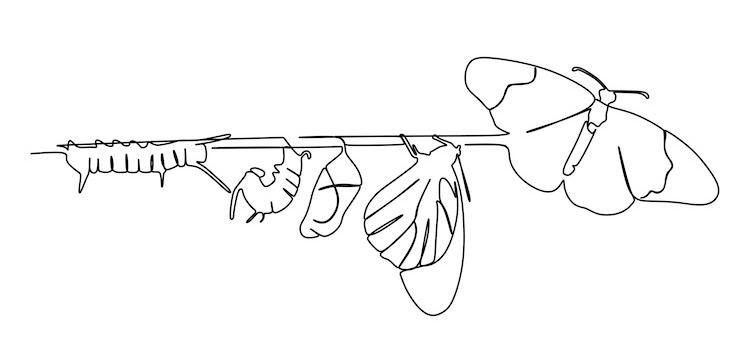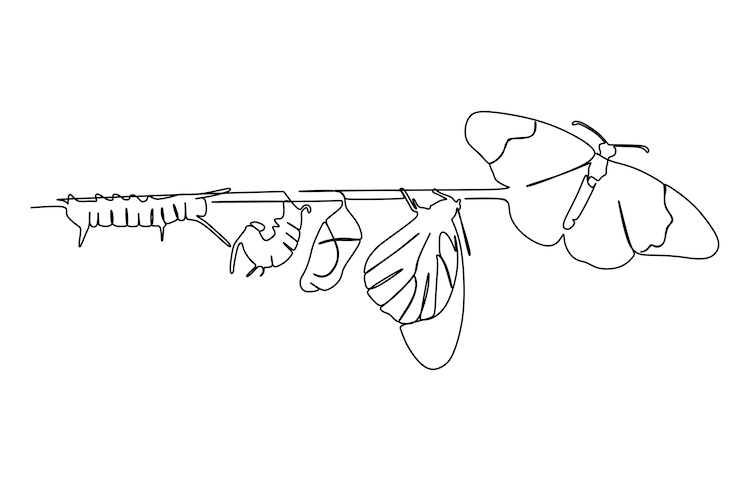 Dear team,
Dear team,
How are you keeping up your skills and knowledge in our increasingly complex and fast-changing world of work? As today’s pandemic turmoil reminds us, it is hard to predict how the future will evolve. But one thing we do know is that continuous learning will be a key survival meta-skill for all of us — learning that each of us consciously guides every day, moment to moment, alone, in teams, with any resource, anywhere and anytime.
Of course, our company is committed to supporting your learning and development, to providing formal training and access to learning opportunities for everyone. But even in the best of times, we will only be able to formally support a small part of what you will need and want. This is why I am sending this note to you: to tell you that we care about your learning and development, that we will do our best to support it, but that 95 percent of your learning is in your hands. Actually, 100 percent is in your hands — for learning ultimately happens in your brain, and you are the one who ultimately brings new knowledge, skills and commitments into the workplace and your life.
So, I invite you to think about your learning and development mindset and practices today and to look ahead to your lifelong learning role in your life and in our company.
It is easy to take learning for granted — it is part of being alive. It is something you were born to do, have done all your life, and can count on into the future. Or can you? Is the trial-and-error and imitation learning that served you as a child good enough today? Or how about the study skills that took you through school? Or even the learning tactics you’ve developed on your own to deal with the adult challenges of life?
More to the point, is your view of learning and are your learning practices adequate for the pace and thrust of change we face today? Do you feel powerful and capable of keeping up and guiding your own development through all the twists and turns that lie ahead? Can you co-evolve with technology — and become smarter because of it?
Consider: More than 50 percent of today’s jobs will probably disappear or change radically within 10 years. There are many reasons for this. Technology is a big driver — it is doing increasingly complex work that we used to think only humans could do (even creating original works of art). And it is doing some of these activities far better. Think about how digital technologies are managing aspects of homes, cities and factories, for example. And technology is doing a lot of the coordinating work that managers used to do.
Beyond technology, companies like ours need more agility, innovation and self-management from everyone. We used to manage more by job descriptions, and you were best described as a box on the organization chart — probably with little expectation that you could experiment, take risks, and act with discretion and autonomy. But today and into the future, your skills and creative thinking matter more. Your “job” responsibilities shift as you move into and out of teams and as we call on you to support new strategies, customer groups and priorities.
And all of this is happening in a very complex and expanding information environment. We know that information is being created at a rapid rate today — and that fields that used to be separate are mingling to create new areas of knowledge. Think of how engineering and biology are mingling — voila: bioengineering. It’s hard to imagine it, but while in 1900 it took a century for human knowledge to double, today it takes about 2.5 years for engineering knowledge to double. IBM estimates that human knowledge will soon double every 12 hours. Surely, we will rely on technology and artificial intelligence capabilities to help us sort through some of this. But the pressure is on for us to become ever more capable learners with increasing intelligence so we can use all this information-rich capability to make decisions about what to do now and in the future.
It’s time to rethink and retool. The old way of thinking about learning and life was: Learn for your first two to three decades. Then apply that learning, get promoted to higher and higher levels at work, retire. These assumptions are not valid today. You have to keep learning just to keep up. Jobs change as new information infiltrates work and customer needs evolve. Your career doesn’t generally progress up the organization chart — for the chart is changing, replaced by a shifting array of teams and projects that are increasingly supported by technology platforms. In addition, your organization affiliation may change. In the course of your work-life you may be a contractor, self-employed, part of a service group that serves many organizations, a full or part-time producer, work for pay and as a volunteer, or work as an employee of a company. Maybe you will even launch your own company — all in one lifetime.
So, what is the new learning meta-skill? Who can you be as a 21st century learner?
Here are a few ways you can optimize your power and competence as a lifelong learner — for your life, your career and your work.
Seize daily learning opportunities. Recognize that your daily life and work are filled with opportunities to learn and develop — through interactions with colleagues and customers, meetings, your project work, problems and challenges that arise in the course of the day, chance encounters with someone in another department. These — and opportunities with family and friends at home — are all calls to learn that are easy to miss. Tune in to them — say to yourself: “I can learn something here.” Ask more questions. Listen. Be curious before you take a stand. End your day a bit smarter than you started it.
Learn from the past. Take time to draw lessons learned from completed projects, failures, disappointments, surprises and successes. We can’t innovate and solve problems if we don’t see life and work as a continuous learning process. When successful people are asked, “Can you describe one of your most important learning experiences?” they almost never say, “this course.” Most of the time the answer is “this failure,” or “this disappointment” or “this surprise.” If you don’t reflect on your experiences, if you see problems as embarrassments to hide, you will not be successful.
Be a learning force in teams. Most teams take time to set performance goals and review progress. But they do little to create the learning culture that makes it possible to quickly recognize problems or to support each other’s development along the way. As a result, team members may compete, hide problems and make it hard for others to ask for help. You can change this and learn more at the same time. At the launch of any team, ask everyone to share a learning goal and to commit to helping each other achieve these goals. Be alert to helping others when you have capabilities to share. And ask for help from others who have capabilities you need. Then, from time to time, check in. Ask, “What are we learning?” You’ll notice the difference in stress levels, creativity, mutual support and — yes — performance!
Have a SMART development plan for yourself as part of a society of learners. Have goals for the knowledge and skills you want to personally develop. Have goals for how you will be a learning force in teams. And have goals to be a coach, helper, mentor and sponsor to others. Be specific — name names — about the people you will consciously support. At its heart, learning is social because we are always building on previous knowledge, being influenced by the culture and people around us, and drawing on resources and experiences created by others.
Develop your learning mindset and capabilities. As a 21st century learner, step into the unknown as well as the known — to experiment, to learn, to self-transform, to make real change happen in yourself and your environment. Open yourself to hearing calls to learn whenever they occur (many times each day!). Create motivating internalized visions of important skills you want to develop. Become a master at finding the best resources amid the information overload around you. Develop and implement agile learning plans. Become a master learner from many resources: articles, meetings, discussions, online courses, mobile apps, podcasts and more. Tune your ability to concentrate and bring the information you need into your brain — using all your body and brain’s resources, including sleep. Then use the best techniques for remembering, developing skills, and updating attitudes or beliefs. Know how to be a change agent, successfully changing your own habits and influencing the people and environment around you to support successful change.
These and more are the practices that will help you learn whenever, wherever and with any resource. And they will ensure that you get the most out of the programs the company provides because you will be a conscious, competent and self-transforming learning partner at work — and in life.















